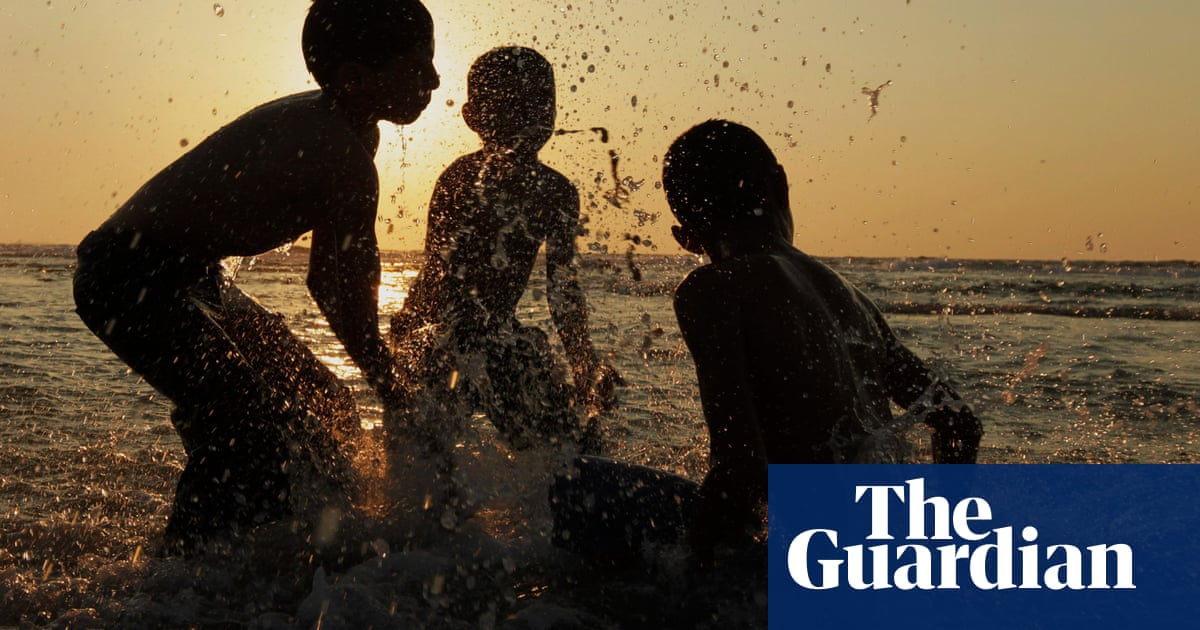
For those of us whose families were murdered in the Holocaust, or who grew up with those who survived it, the horrors of those dark days of the 1930s and 1940s are never far from our thoughts and emotions. Inescapably, our values, our view of humanity and society, and even our daily behavior is affected by those hideous crimes.
Commemorations such as those on the 75th anniversary of the liberation of the Auschwitz extermination camp evoke powerful and painful emotions, but also give much strength in knowing that the world hasn’t forgotten the Nazi genocide of six million Jews and others including Roma, Slavs, homosexuals and those with mental disabilities who were deemed to taint the purity of the “Aryan race.”
Being of a second generation of Holocaust survivors has always meant that part of my identity was shaped by it; learning to live with the horrific experiences that my parents endured, but also living with the knowledge that so many family members are absent, and having to confront a void, without even photos left of them and in many cases no grave at which to grieve for them — only names and stories of grandparents, aunts, uncles and cousins I never met.
This feeling of senseless loss to evil affected many of my generation. “Never Again” has become not only a slogan but also a way of life, a leitmotif, but one with different interpretations. For many Jewish people, Never Again means, and understandably so, ensuring that Jewish people will be able to live lives free of constant persecution in any shape or form. However, there is as much a universal lesson from that bleak period in history as one for the Jewish people. The universal lesson is not just that other communities have suffered from a similar fate, but also that genocide and crimes against humanity have not been eliminated.
It is also the responsibility of the second generation to make no compromise with Holocaust deniers. There is no excuse for those who, for whatever sick reasons, deny victims and survivors of the Holocaust their suffering and justice. They have done so since 1945, in the immediate aftermath of the Second World War, when the evidence of piles of corpses at Auschwitz, Birkenau, Sobibor and Majdanek, along with the details so thoroughly documented by the meticulous Nazi-German machine, was staring them in the face. Denying survivors their truth and justice is a crime second only to that of the perpetrators of those atrocities.
In a recent TV interview, I was asked whether I could understand how such a genocide could have happened in the first place, and especially perpetrated by a nation regarded as the epitome of Western civilisation. Historically and politically, maybe even intellectually, I am capable of understanding the chain of events that led to the temporary victory of the Nazi race ideology with its twisted conclusion of wanting to eradicate an entire nation. At the same time, I replied, deep down I find it almost impossible to accept that people are capable of inflicting such extreme pain on other people, let alone innocent ones, among them one million children.
Bangladesh, East Timor, Cambodia, Rwanda, Darfur and Syria are all tragic reminders that whether it is by guns and rifles, machetes or barrel bombs, our capacity for collective psychopathic behaviour hasn’t been defeated along with Nazi Germany.
Yossi Mekelberg
However, it is not only Nazi Germany that bears responsibility, but also those who collaborated with it, and those who knew about the systematic murder of millions and did nothing to stop that killing machine or save Jews while it was still possible. Jan Karski, a member of the underground Polish resistance, and later a professor at Georgetown University, who was the first to report to the Polish government in exile and the Western allies about the atrocities in the Warsaw ghetto and other German extermination camps in Poland, observed: “We all have infinite capacity to do good and infinite capacity to do evil. We have a choice.” And, despite the excruciating difficulty of accepting that evil is ever present in human beings and is inherent in them, we are culpable for yielding to it or not doing enough prevent it.
Despite the punishments meted out to many of the Holocaust’s perpetrators, and the establishment of international mechanisms to prevent genocide, mass killings and other war crimes and crimes against humanity, these outrages have not been eradicated. Bangladesh, East Timor, Cambodia, Rwanda, Darfur and Syria are all tragic reminders that whether it is by guns and rifles, machetes or barrel bombs, our capacity for collective psychopathic behaviour hasn’t been defeated along with Nazi Germany.
Hannah Arendt, a Holocaust survivor and a philosopher, warned us that what makes the Nazi killing machine frightening beyond the obvious is that much of its activities were conducted by bureaucrats sitting behind desks and overeseeing, with typical German efficiency, the mass murder machine. She called this “the banality of evil,” of men and women who carried out the wholesale murder of millions of people in a routine, job-like fashion, no questions asked, in total obedience, and at times with the deep conviction that they were doing it for the glory of the Fatherland and the Third Reich.
The generation that experienced the Second World War did much to ensure that the world understood what they went through and would draw the right conclusions from the bloodshed of the war and the genocide of the Jewish people. The establishment of the UN, the formation of the EU, the introduction of the Universal Declaration of Human Rights, the founding of the Jewish state and the eradication of German and Japanese militarism were all considered responses to the horrors of 1939–1945. Nevertheless, such responses never managed to eliminate war, conflict, crimes against humanity and even genocide.
Worryingly, in recent years the world has been witnessing a serious regression in some of the achievements of the postwar era in advancing human rights and preventing war. When such reversals take place it is worth remembering another of Jan Karski’s observations: “Great crimes start with little things … You don’t like your neighbors. You don’t like them because they are different. Avoid this. Avoid disliking people. Don’t make distinctions … the common humanity of people is the only real protector of human rights.”
Too often we fail this basic test of our humanity, and put the blame on others to justify the violation of our neighbours’ human rights, or else stay silent when such violations take place.
Yossi Mekelberg is professor of international relations at Regent’s University London, where he is head of the International Relations and Social Sciences Program. He is also an associate fellow of the MENA Program at Chatham House. He is a regular contributor to the international written and electronic media. Twitter: @YMekelberg
Disclaimer: Views expressed by writers in this section are their own and do not necessarily reflect Arab News" point-of-view












